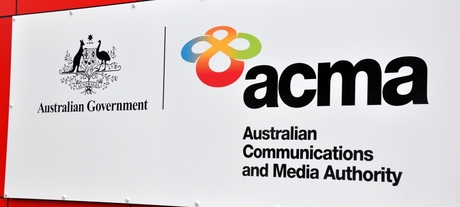ACMA releases 5G discussion paper

The ACMA is mulling re-farming additional spectrum for mobile broadband and has released a discussion paper on the subject.
“In the last year, consideration of these bands for mobile broadband has progressed significantly on the international stage,” said acting ACMA Chairman Richard Bean. “Given the momentum developing, the time is right for us to consider the potential for re-planning the bands in Australia.”
International standards support 4G technologies in both the 1.5 GHz and 3.6 GHz bands, with the 3.6 GHz band also being considered internationally as an early band for 5G.
“Re-farming these bands would enable additional capacity for new or existing operators’ mobile networks,” Bean added.
The 1.5 GHz and 3.6 GHz bands are currently used by a variety of services. They include satellite and fixed-broadband services in the 3.6 GHz band, and defence use and fixed services, particularly in regional and remote areas, in the 1.5 GHz band.
The discussion paper, Future use of the 1.5 GHz and 3.6 GHz bands, can be downloaded here.
“This paper gives current users of the bands as well as potential new entrants an opportunity to help us better understand the issues relevant to each band,” Bean added.
“Their views will help us to determine what, if any, frequencies and geographical areas should be considered in a possible future re-farming of the bands for mobile broadband.”
The paper seeks public comment on the possible use for mobile broadband services of spectrum in the 1.5 GHz and 3.6 GHz bands, as foreshadowed in the October 2016 update to the ACMA’s Mobile Broadband Work Program.
The 1427–1518 MHz band (the 1.5 GHz band) and the 3575–3700 MHz band (the 3.6 GHz band) are currently included in the initial investigation stage of the Mobile Broadband Work Program.
An analysis of current usage as well as potential planning options for re-farming are provided in the discussion paper.
The ACMA said it is seeking comment from stakeholders on these options to help inform its decision-making, including whether or not to progress consideration of one or both of the bands to the preliminary re-planning stage of the Mobile Broadband Work Program.
Comms Connect Wellington Call for Papers opens, exhibition almost full
Comms Connect's move to Wellington has met with strong industry support, with just three...
Icom Australia appoints new Business Development Manager
Icom has announced the appointment of Troy Abel to its Australian team as Business Development...
Rohde & Schwarz opens Auckland office
Rohde & Schwarz Australia has launched a new office in New Zealand, expanding its presence...



